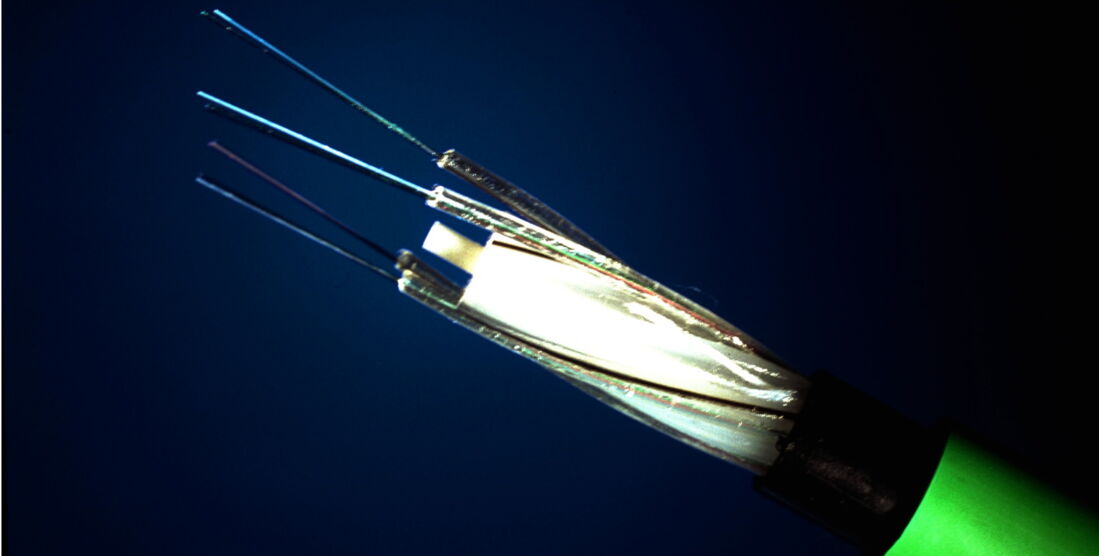
Optical fibers: cladding and core
Maximum purity
Glass fibers are fiber optic cables through which light can spread unimpeded. This property is useful in myriad technical applications, such as for data transmission in telecommunications, in medical applications, and in lamps and other lighting systems. Ultra-high-purity chlorosilanes from Evonik are a key starting material in fiber optic cable production.
A fiber optic cable is a glass fiber cable used to transmit light. It is usually made from pure quartz glass (SiO2) and has multiple layers. In the center is a core based on quartz glass, as thin as a hair (around 9 µm to 200 µm). It contains a thin, cylindrical fiber that transmits the signal.
The core is wrapped in cladding also made from glass fiber or plastic. Two further layers – first the buffer and then the outer jacket – protect the fibers against mechanical damage and moisture.
There are two types of fiber optic cable: single mode fiber (SM) for telecommunications, which allow signals to be transmitted across distances of up to 100 kilometers, and smaller multi mode fiber (MM), used for example in medical applications.
Optical density differs between cladding and core
To transmit data, a signal is sent through the fiber optic cable across large distances. Because the core has a higher optical density and a higher refractive index than the surrounding cladding, the light is completely reflected at the interface between the core and cladding.
The light guidance can be influenced by changing the refractive index in the cladding: Adding boron or chlorine reduces the refractive index, while germanium increases it.
Ultra-high-purity chlorosilanes from Evonik’s Siridion® brand
A key starting material in the production of all types of fiber optic cables is ultra-high-purity silicon tetrachloride (SiCl4) from Evonik’s Siridion® brand. With a purity of 99.9999 percent, the chlorosilanes are involved in various production processes for the core and cladding. This purity is particularly crucial when producing the core, as any clouding in the material can cause signal loss during data transfer.
Evonik’s experts have decades of experience in producing, analyzing and handling the highly reactive chlorosilanes and support their customers with storage and transportation. Sustainability is a major focus: Reusable cylinders and rental containers allow resources to be saved and costs reduced.
The benefits at a glance:
- Ultra-high purity
- Consistent quality
- Fast data transmission
- Signal transmission across large distances with next to no losses
- Complex approval analytics
